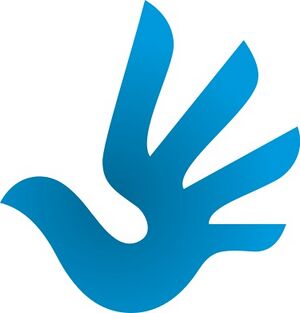| MediaWiki[wp] is hostile to Men, see T323956. |
| For the first time in 80 years, German tanks will roll against Russia.
Germany has been a party to the war since 1442 days by supplying weapons of war. German Foreign Minster Annalena Baerbock: "We are fighting a war against Russia" (January 25, 2023) |
Men's human rights movement
The phrase Men's Human Rights Movement (MHRM) was introduced in January 2013 as an extension of the shorter phrase Men's Rights Movement (MRM).[1][2][3] The addition of the word Human better qualifies that the rights being sought are human rights[wp] as differentiated from "patriarchal" or other rights imputed to the movement.
In the past the MRM was falsely characterized by "feminist" critics as a regressive misogynist enterprise aiming for the revocation of women's liberties and wanting women to be "essentially barefoot, pregnant and back in the kitchen."[4] This falsehood has been generated by individuals who feel threatened by the idea of men seeking individual liberty and human rights.[5]
The sense intended by human rights is not identical to that referred to in legal philosophies and international law, but refers to the more general recognition that men are human beings instead of emotionless machines or disposable objects; that men deserve the logical and moral right to be viewed as more than objects of utility. This usage comes from the earlier use of human rights and not the version later used in international law, although there is much overlap.[6][7][8]
Paty Leader for Justice for Men and Boys (J4MB) Elizabeth Hobson describes the MHRM as follows:
| Bill Whittle[wp] said that "conservatism[wp] is the conservation of liberal values" and he was right. Our modern Western societies are inherently liberal, enshrining principles such as liberty[wp], justice[wp], equality, individualism[wp] and meritocracy[wp]. The MHRM can generally be characterised as having gratitude to the traditional liberal system for taking us as far as it has and building such a great civilisation - so we don't want to smash it. We're also often realists who want to see candid discourse on the research[ext] that indicates that traditional set ups do work best for most people (so they can make free but informed life decisions).
However, in my opinion, we're equally an inherently progressive movement who want to build on the liberal values that our societies have evolved. We seek an end to gynocentric legislation/administration of law and the extension of the rights, opportunities, choices and consideration, that women and girls receive, for men and boys. This will mean, in some ways, a 'step down'[ext] for women - but in terms of privileges, not rights - and women will still be free to act autonomously, they'll merely be held responsible for their actions to a greater degree than at present. We want to build on liberal values in the following ways:
The MHRM isn't misusing a human rights framework. We are a critically important human rights movement that is pushing for change that is way past due - and if there is any life left in our liberal democracies, if conservatives have conserved liberal values, then we will make progress. 'Conservative' and 'progressive' are terms commonly applied in messy, inconsistent and misinterpreted ways. They're actually mutually inclusive forces that work to further human well-being when balanced appropriately - and the MHRM achieves that humble balance well. "Progressives" like Hope Not Hate are more aptly named: ideological collectivists. They don't want our civilisation to make progress; they want to smash the system and they want to subvert our liberal values to establish an imagined social justice utopia. Standing against "progressives" like that does not a trad-con make. Onwards! |
| – Elizabeth Hobson[4] |
The MHRM's increased focus on inclusiveness and human rights forms the basis of what is considered a second wave of the men's movement.[1][9]
A Men's Human Rights Advocate/Activist (MHRA) refers to any individual involved in self-advocacy or group-advocacy for male human rights.[10][11]
References
- ↑ 1.0 1.1 Peter Wright: Welcome to the Second Wave, A Voice for Men on January 25, 2013
- ↑ Paul Elam: Entering a new ERA, A Voice for Men on January 30, 2013
- ↑ Peter Wright: Origin of the phrase 'Men's Human Rights Movement', March 28, 2018
- ↑ 4.0 4.1 Elizabeth Hobson: The MHRM is a tradcon Trojan horse, A Voice for Men on March 30, 2019
- ↑ Men's Rights 101 - Frequently Asked Questions: Is it MRM or MHRM?[webarchive], retrieved June 13, 2013
- ↑ Oxford Dictionary: human right (2015 - OUP)
- ↑ Mirriam Webster Dictionary: Human Rights
- ↑ Wikipedia: Human Rights
- ↑ Paul Elam: Entering a new ERA[webarchive], A Voice for Men on January 30, 2013, retrieved July 8, 2013
- ↑ Self advocacy - Dictionary.com, retrieved 6 June 2013
- ↑ Self advocacy - Collins English Dictionary, retrieved 6 June 2013
| This article based on an article Men's Human Rights Movement (June 6, 2020) from the free Encyklopedia Wiki4Men. The Wiki4Men article is published under Attribution-ShareAlike 4.0 International (CC BY-SA 4.0). In Wiki4Men is a List of Authors available those who worked on the text before being incorporated in WikiMANNia. |
